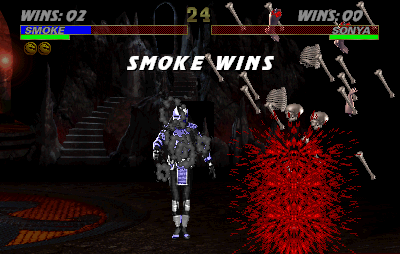I already did answer your "free market" assertion. Companies didn't ban on their own because the best interest of consumers and the best interest of companies are not the same. In fact they are quite disjoint.
Important topic: (Because I enjoy nothing more than shattering the framework of others' beliefs)
It is clear, snex, that you value the Free Market system very highly. A capitalist for sure. Are you familiar with the work of John Nash? You may remember him from the movie "A Beautiful Mind". He was a real mathematician who worked in Game Theory, and one of his major contributions was proving that Adam Smith was wrong.
They go over it briefly in the movie. Recall the scene where Nash has his epiphany: He and his friends are at a bar and spot a group of women, one of which is prettier. It strikes Nash that if they all work entirely by self-interest (going for the blond) then their utility is not maximized (nobody gets the blond).
Anyway, the gist of his work is that the Free Market system is flawed in many important ways. Agents acting on self interest do not lead to optimal results.
You inevitably enter what is called "Nash Equilibrium", which is a state where you have maximized your own goals given the choices of other players. But the crux is that the sums of the Nash Equilibrium states for all players is not the optimal possible sum! In essence: when everyone acts only maximize their own good, they do not achieve it.
Consider this (contrived) example: The prisoner's dilemma.
Two men rob a bank and are being questioned by the police in separate rooms. Each one is given a choice: To stay silent and not say anything, or to rat out the other prisoner.
If one rats the other out, the rat gets off free, while the betrayed prisoner gets 10 years in jail. If they both rat each other out, they both get five years in jail. And finally if they both stay silent, they both serve 6 months in jail.
You are prisoner 1, and don't know what prisoner 2 has chosen. What do you do?
1) If you choose to stay silent you could serve 6 months or 10 years, depending on what the other guy picks.
2) If you rat him out, you'll either get 0 time, or get 5 years.
It is easy to see that it is in your best interest to rat the other prisoner out. No matter what he chooses, it your jail time is less given his choice.
BUT: When both prisoners act in their own self interest, we end up with the case where they both receive 5 years in jail. This is not the optimal situation. The best outcome is where both prisoners stay silent! Then they both receive only 6 months in jail each! Acting on self interest hurt them both.
What John Nash did was prove that this principle extends to any nontrivial system (such as economics)
In order to actually optimize your benefit, you must work to the best interest of the whole, not the self.


